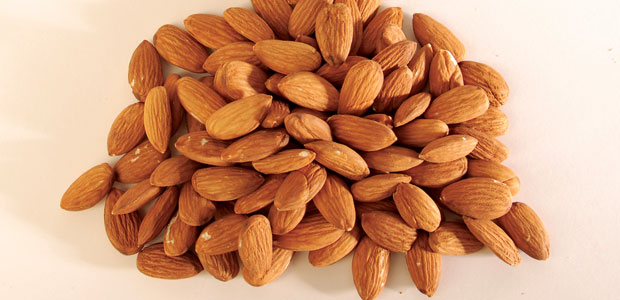Advertisement
Nuts and Seeds
Birds, squirrels, and even elephants know a good thing when they see it–seeds and nuts, which are excellent health foods. Amazing sources of vitamins and minerals, seeds and nuts have many disease-fighting benefits. What’s more, they add flavour and substance to the foods we eat. Let’s look at some of the great health benefits that … Continued

Birds, squirrels, and even elephants know a good thing when they see it–seeds and nuts, which are excellent health foods. Amazing sources of vitamins and minerals, seeds and nuts have many disease-fighting benefits. What’s more, they add flavour and substance to the foods we eat. Let’s look at some of the great health benefits that we humans can realize from some of those birdfeeder seeds and nuts.
Flaxseeds
Flaxseeds are a great source of fibre that contain alpha-linolenic acid (ALA), an omega-3 fat, which has been proven to provide anti-inflammatory benefits as well as protection against heart disease, diabetes, and cancer.
“The benefits my wife and I have observed include softer, more flexible hair and nails, less arthritic pain, regular bowel movements, and improved skin condition,” says Howard Selig, a registered dietitian from Middleton, Nova Scotia.
In order to gain the benefits of ALA, it is essential to grind the flaxseeds before consumption. Whole seeds, while providing a great source of fibre, will pass right through you without releasing ALA. You can grind flaxseeds yourself in something as simple as a coffee grinder.
Sunflower Seeds
Another bird favourite, sunflower seeds provide a great source of vitamin E (over 90 percent of your daily needs in a quarter-cup serving). Their antioxidant properties provide relief against inflammation, reduce the risk of colon cancer, decrease hot flashes during menopause, and help prevent cardiovascular disease.
Magnesium and selenium–32 percent and 31 percent respectively of daily requirements per 1/4 cup (60 mL)–are also found in high amounts in sunflower seeds. Magnesium helps to reduce high blood pressure, migraines, and the risk of heart attack and stroke, while studies have found selenium to be related to reductions in various types of cancer.
“A deficiency in selenium can predispose you to heart diseases and cancer,” according to Sarah Peterson, RD.
Sesame Seeds
Another little powerhouse, sesame seeds can be added to many dishes and provide a high source of numerous minerals such as copper–74 percent of daily requirements per 1/4 cup (60 mL) and manganese–44 percent of daily requirements per 1/4 cup (60 mL). They are also high in calcium–35 percent daily requirement per 1/4 cup (60 mL).
Copper has been shown to decrease swelling from rheumatoid arthritis, and calcium is beneficial for protection from bone loss, prevention of migraines, and reduction of PMS symptoms.
Sesame seeds, one of the oldest known condiments, also lower cholesterol. One innovative way to enjoy sesame seeds is to eat gomasio, a macrobiotic salt replacement (see sidebar).
Walnuts
A great choice for crunch in your baked goods or salads, walnuts are also high in ALA, just like flaxseeds, and help improve cardiovascular health. Walnuts are also unique in that they can help type 2 diabetics achieve optimal fat intake without negative effects on total fat or energy intake, according to a 2005 study in the Journal of the American Dietetic Association.
Almonds
Classified as nuts, but actually a seed, they come from the fruit of almond trees. Almonds are a terrific choice for a small snack or as additions to salads and baked goods. The fat from these nuts is monounsaturated, so they are heart healthy as well as delicious.
As with any food, you should eat seeds and nuts in moderation–a handful a day is a good recommendation. Seeds and nuts complement many meals and make a healthy snack on their own. So take a look in your birdfeeder, and see what you’re missing.
Gomasio (sesame salt)
Make gomasio in small quantities to preserve freshness. This recipe makes 1/4 cup (60 mL).
1/4 cup (60 mL) sesame seeds
1 tsp (5 mL) sea salt
Toast seeds over low heat in a dry skillet until they just begin to colour, shaking often to avoid burning. While still hot, grind in a blender or coffee grinder, or pound fine with a mortar and pestle. When crushed, add salt and process a few seconds longer to coat the salt with oil from the seeds.





